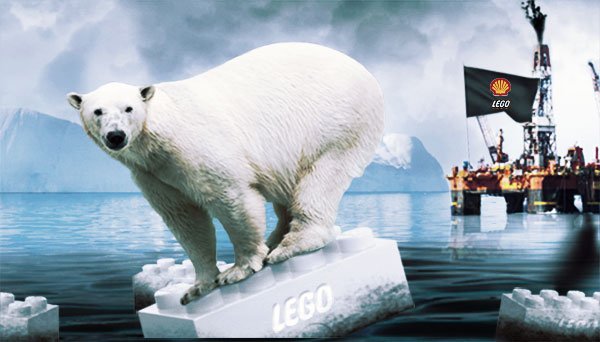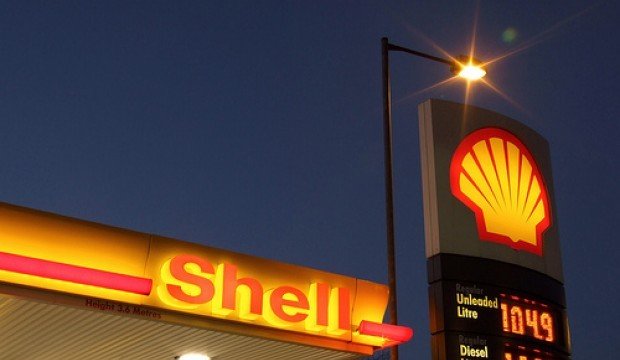Lego will not renew a promotional contract with Royal Dutch Shell following pressure from environmental group Greenpeace.
The Danish toymaker did not say when its “long-term” contact with Shell expires.
Greenpeace has been campaigning against Arctic drilling by oil companies such as Shell and has accused Lego of associating with “bad company”.
Lego toys are handed out to people filling up at Shell gas stations in more than 30 countries.
As part of a branding deal first signed in 2011, Lego has also sold toy brick sets in the shape of petrol stations and drilling rigs with Shell’s logos on them.
Greenpeace said Shell has been using Lego to build brand loyalty with millions of children who are the “next generation of consumers”.
As part of its campaign, the lobby group uploaded a YouTube video showing Lego toys drowning in oil in the Arctic, which received nearly six million hits.

Greenpeace has been campaigning against Arctic drilling by oil companies such as Shell and has accused Lego of associating with bad company (photo Facebook)
Greenpeace said in response to Lego’s decision: “It should choose its partners more carefully when it comes to the threats facing our children from climate change.”
Lego Group president and chief executive Jorgen Vig Knudstorp said the company should never have become part of Greenpeace’s dispute with Shell.
“The Greenpeace campaign uses the Lego brand to target Shell,” he said in a statement.
“We firmly believe Greenpeace ought to have a direct conversation with Shell.”
“We do not agree with the tactics used by Greenpeace that may have created misunderstandings among our stakeholders about the way we operate,” Jorgen Vig Knudstorp added.
Shell said its contract with Lego “has been a great success and will continue to be as we roll it out in more countries across the world”.
The company has been exploring for oil in the Arctic since 1918 and is forecast to spend billions of dollars drilling for oil and other fossil fuels in the Arctic over the next decade.
In recent years, the practice has come under intense scrutiny because of concerns it will damage the environment and contribute to global warming.
“The extreme Arctic conditions, including giant floating icebergs and stormy seas, make offshore drilling extremely risky,” Greenpeace said.
“Scientists say that in the Arctic, an oil spill would be impossible to clean up meaning devastation for the Arctic’s unique wildlife.”
[youtube UUuEPapBTQA 650]
Shell has agreed to sell its Australian downstream business to oil trading firm Vitol for $2.6 billion.
The sale includes Shell’s refinery in Geelong, 870 service stations, its bulk fuels and chemicals unit and part of its lubricants business.
However, Shell’s aviation business is excluded from the deal.
The oil giant is looking to dispose off assets as part of a strategy that will see the company “changing emphasis” in 2014.
The asset sales also come at a time when its profits have been declining.

Shell has agreed to sell its Australian downstream business to oil trading firm Vitol for $2.6 billion
Last month, Shell posted “clean” profits – which strip out the impact of oil price movements – of $2.9 billion for the October-to-December quarter, down from $5.6 billion during the same period a year ago.
“Australia remains important to Shell, but we are making tough portfolio choices to improve the company’s overall competitiveness,” Ben van Beurden, chief executive of Shell said in a statement.
Recent disinvestments by Shell include the sale of refineries in the UK, Germany, France, Norway and the Czech Republic.
The company has also offloaded its downstream businesses in Egypt, Spain, Greece, Finland and Sweden.
Shell said that majority of its downstream staff in Australia will continue to work under its new owner.
Shell and Vitol deal is subject to regulatory approvals and is expected to close within this year.
Nigeria’s oil regulator has asked industry giant Shell to pay $5 billion for the Bonga oil spill from last December.
The disclosure was made during a parliamentary hearing on the matter.
A leak at the Bonga field during a transfer of oil to a tanker led to 40,000 barrels spilling into the Atlantic Ocean.
A Shell spokesperson said there was no need for a fine as everything had been done to prevent environmental damage.

Nigeria's oil regulator has asked industry giant Shell to pay $5 billion for the Bonga oil spill
The Bonga field, operated by Shell Nigeria Exploration and Production Company (SNEPCO), is approximately 120 km (75 miles) offshore and produces 10% of Nigeria’s oil exports.
The spill was contained before it reached the shore.
The head of Nigeria’s National Oil Spill Detection and Response Agency urged MPs on the House of Representatives’s environment committee to approve his proposal.
“Although adequate containment measures were put in place to combat the Bonga oil spill, it however posed a serious environmental threat to the offshore environments,” Peter Idabor said.
“The people could not fish after a long period after the spill,” he said.
“So that’s why we are looking at the damages. If the people said they will not pay, so be it. But we want to make it very clear that it’s wrong for them to say they cannot pay. Are they denying that they spilled 40,000 barrels of crude oil into the waters?” he asked.
But Shell said it believed there no “basis in law for such a fine”.
“SNEPCO responded to this incident with professionalism and acted with the consent of the necessary authorities at all times to prevent environmental impact as a result of the incident,” a spokesperson for the Anglo-Dutch company said in a statement.
Most previous oil spills in Nigeria – one of the world’s biggest oil producers – have been onshore. Many have been caused by sabotage or militant attacks.
Last year, a UN report into spills in Ogoniland found that the region could take 30 years to recover.
In March, lawyers representing a fishing community in Ogoniland began a case against Shell in a London court over recent oil spills.



